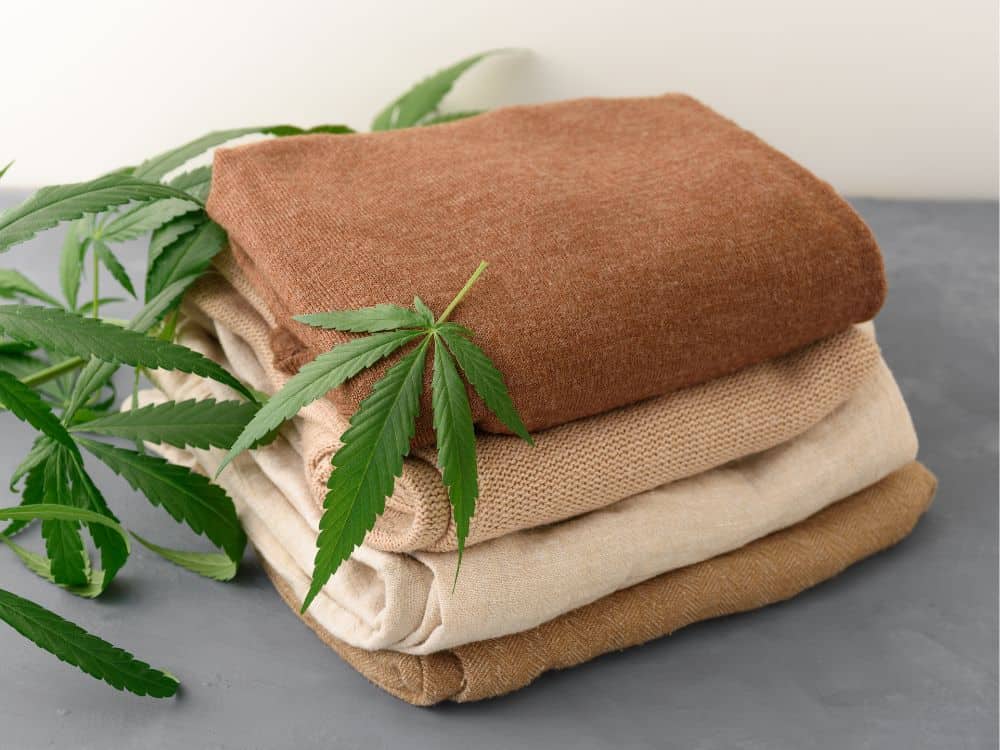Recommended News To Choosing Bamboo Clothing
Wiki Article
What Are The Benefits Of Low Impact Hemp Fibre Clothing That Is Sustainable?
Low impact fiber hemp clothing has numerous environmental benefits compared to clothing made from other materials, notably synthetic fibers and conventional cotton. Hemp clothing offers several environmental benefits. It is fast growing and requires very little water, herbicides or pesticides. Hemp is adaptable to different soils and thrives in various climates.
Lower water usageReduced Water Usage Hemp generally requires less water than conventional cotton, which is renowned for its high water consumption. This makes hemp a efficient choice for production of clothing.
Hemp is usually grown without using synthetic pesticides. Herbicides are also not necessary. This helps to reduce the environmental harm that comes from chemical farming.
Hemp is good for soil health. Its deep roots help to prevent erosion and compaction. Hemp leaves soil well prepared for the future crops.
Hemp can be biodegraded. It breaks down naturally with time and reduces textile waste. Comparatively, synthetic fibers including polyester are able to decompose in a matter of hundreds of year.
Low Carbon Footprint - Hemp fibers have a lower carbon footprint than synthetic materials. Hemp also acts as an absorber of carbon dioxide by absorbing it from the air during the process of growing.
Durability Hemp clothing is renowned for its long-lasting durability and durability. The best hemp clothing will last for years. This means you won't need to replace them often and will reduce the amount of waste.
Hemp plants naturally repel various bugs. They don't require pesticides.
Hemp is a versatile material that can be used to create bags, clothes and accessories.
Regenerative Agriculture. Certain sustainable farming methods integrate hemp into the regenerative farming methods which seek to improving and restoring ecosystems while producing crops. This can have positive effects on the natural environment.
While hemp has many advantages for the environment, its sustainability is impacted by other aspects, such as the transport, dyeing process and consumer behavior. Additionally, as with every industry, there could be a variety of production methods and standards, so it's recommended to seek out certified organic or sustainable hemp clothing choices to guarantee the greatest quality of life. See the best the full report on hemp clothes for blog examples including hemp clothing womens, hemp clothing for men, afends jesse dress, organic hemp underwear, hemp golf shirts, hemp jeans, organic hemp hoodie, organic hemp hoodie, hemp apparel wholesale, hemp underwear and more.

What Are The Benefits Of Hemp Fibers With The Sequestration Of Carbon, Sustainability And Crop Rotation?
Hemp fibers can contribute to carbon sequestration, sustainability, and crops rotation in many ways which makes them an eco friendly choice for both production of textiles and agriculture Carbon Sequestration-
Hemp is an extremely fast-growing plant that is extremely fast-growing. It is able to mature in as little as 70 to 120 days according to the type of plant and the conditions. During its rapid growth phase, hemp plants absorb carbon dioxide (CO2) from the atmosphere in order to photosynthesis. Carbon uptake is a major factor in carbon sequestration and reducing CO2 in the air.
Hemp's high biomass production is well known. The dense foliage and long stalks of hemp yield massive amounts of organic matter. When integrated in the soil or used to create various products can contribute to a buildup of carbon.
Sustainability:
Hemp requires less synthetic pesticides, herbicides, and herbicides than other crops like cotton. The hemp's natural resistance to a variety of diseases, pests and weeds minimizes the need of chemical interventions. The organic hemp industry, in particular emphasizes sustainability through the avoidance of synthetic chemicals.
Hemp is a water efficiency, in comparison to other crops that need a lot of water like cotton. This makes hemp more sustainable in areas with less water resources.
The deep root system of hemp improves the health of soil. The roots of hemp help to stop soil erosion by stabilizing the structure of soil and reduce runoff. Hemp may increase soil microbial activity, which enhances the cycle of nutrient and soil fertility.
Hemp is a great crop to incorporate in rotation systems. Crop rotation means alternating crops in a field for a period of the course of. This practice can help break the cycle of disease and pests, reduce soil erosion, and improve the soil's structure. Hemp's contribution to crop rotation contributes to the sustainability of farming practices.
Rotation of the crop-
Hemp can be included in the rotation of crops along with other crops such as legumes, grains or even vegetables. This can help farmers maintain soil quality as well as reduce the risk of pests, diseases and other issues related to crops and help promote a healthy process of nutrition.
Hemp roots penetrate the soil and aerate it, which decreases compaction and increases water infiltration. The soil's structure is improved after a hemp harvest and can benefit other crops.
In short, hemp fibers enhance the storage of carbon, sustainability and crop rotation practices due to their rapid growth and biomass production. They also require less chemicals, make efficient use of water, and can be used in conjunction with crop rotation systems. The hemp fibers that are produced by this sustainable, regenerative farming method are a great choice for textiles. Follow the best hemp clothing for site tips including hemp sportswear, patagonia hemp overalls, hemp hoodie, jungmaven sweatshirt, hemp shirts wholesale, patagonia ranch jacket, hemp swimsuit, organic hemp hoodie, patagonia work pants hemp, women's all seasons hemp canvas bomber hoody jacket and more.

Bamboo Clothing Is Environmentally Friendly And Comfortable.
Bamboo clothing is a fantastic option for comfort as well as the surroundings.
Softness Bamboo fabric is well appreciated for its incredible softness. It has a silky smooth texture that feels soft against your skin. Bamboo clothing is a favorite for its luxurious softness, which makes it an excellent choice for loungewear, activewear and intimate clothing.
Bamboo fibers have a natural capacity to absorb moisture and also breathe. Air circulates through the gaps which keep you cool in the hottest temperatures. The moisture-wicking qualities help to draw sweat away from your body, reducing dampness.
Bamboo clothing has excellent properties for thermoregulation. It can help keep you warm by trapping the heat near your body. It can also help you to keep cool in summer heat because it lets excessive heat and moisture to escape. The ability to adapt to different temperature is what makes bamboo clothing perfect for wear all year round.
Hypoallergenic Bamboo is hypoallergenic due to nature, and it is gentle on sensitive skin. It is less likely to trigger irritation or allergic reactions, which makes it a comfortable choice for individuals with skin sensitivities or allergies.
Bamboo fibers are resistant to odors due to their antimicrobial properties. This is a factor in the freshness and ease of wearing bamboo clothing, even in exercising.
Environment-
Bamboo is sustainable- It is a sustainable, renewable resource. It is among the fastest-growing species worldwide and requires a minimum amount of water as well as no pesticides or herbicides for cultivation. Bamboo can be grown from roots, making it possible to harvest the plant without damaging the plant.
Low water consumption- Bamboo is inherently water-efficient. It can thrive on minimal irrigation. The rainwater supply is usually sufficient for it to flourish.
Biodegradability- Bamboo clothes are biodegradable, which means it degrades naturally as it is disposed. This feature reduces waste that is not biodegradable textiles in landfills.
Carbon Sequestration Bamboo plants can absorb carbon dioxide (CO2) during rapid growth. As a result, bamboo cultivation could act as carbon sinks, assisting to slow climate changes through reducing greenhouse gas levels.
Chemical Reduction - The manufacture and processing of bamboo textiles generally requires less chemicals than some other textiles. This can help reduce the environmental impact that textile manufacturing is a contributor to.
Closed-Loop Manufacturing Certain bamboo fabric manufacturing processes employ closed loop production that recycles and reuses water and chemicals to reduce waste and pollution.
Be aware that the impact of your actions on the environment on bamboo clothing will vary according to whether it's produced using sustainable and responsibly managed bamboo forest. Customers should purchase only bamboo clothing made with eco-friendly ethical practices in order to reap maximum environmental benefits. Read the best the full report for bamboo clothing for blog examples including kyte pajama, bamboo shirt, bamboo sportswear, bamboo boxer shorts for men, bamboo boxer shorts, bamboo yoga pants, mens bamboo boxer shorts, bamboo cotton t shirts, cozy earth clothes, bamboo cay christmas shirts and more.
